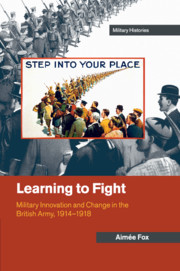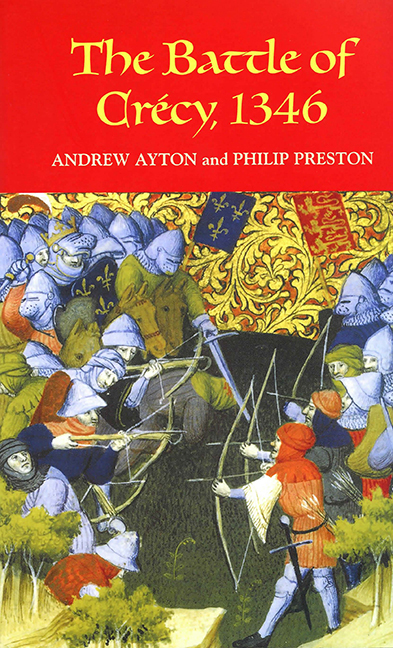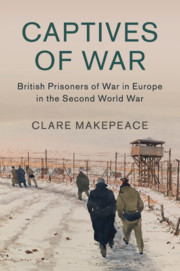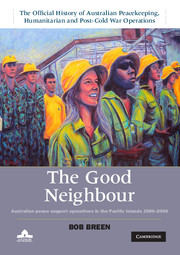Refine search
Actions for selected content:
15418 results in Military history
5 - The Americanization of the Vietnam War, 1963–1968
-
- Book:
- The Vietnam War Reexamined</I>
- Published online:
- 11 December 2017
- Print publication:
- 14 December 2017, pp 117-160
-
- Chapter
- Export citation
Introduction
-
- Book:
- Learning to Fight
- Published online:
- 24 November 2017
- Print publication:
- 14 December 2017, pp 1-16
-
- Chapter
- Export citation
Maps
-
- Book:
- The Vietnam War Reexamined</I>
- Published online:
- 11 December 2017
- Print publication:
- 14 December 2017, pp ix-ix
-
- Chapter
- Export citation
Part I - The Practice of Learning
-
- Book:
- Learning to Fight
- Published online:
- 24 November 2017
- Print publication:
- 14 December 2017, pp 17-102
-
- Chapter
- Export citation
Bibliography
-
- Book:
- Learning to Fight
- Published online:
- 24 November 2017
- Print publication:
- 14 December 2017, pp 251-271
-
- Chapter
- Export citation
2 - Vietnam 101: Origins to 1946
-
- Book:
- The Vietnam War Reexamined</I>
- Published online:
- 11 December 2017
- Print publication:
- 14 December 2017, pp 37-63
-
- Chapter
- Export citation
Contents
-
- Book:
- The Vietnam War Reexamined</I>
- Published online:
- 11 December 2017
- Print publication:
- 14 December 2017, pp vii-viii
-
- Chapter
- Export citation
Figures
-
- Book:
- Learning to Fight
- Published online:
- 24 November 2017
- Print publication:
- 14 December 2017, pp vi-vi
-
- Chapter
- Export citation
4 - America Comes to Vietnam, 1954–1963
-
- Book:
- The Vietnam War Reexamined</I>
- Published online:
- 11 December 2017
- Print publication:
- 14 December 2017, pp 94-116
-
- Chapter
- Export citation
Contents
-
- Book:
- Learning to Fight
- Published online:
- 24 November 2017
- Print publication:
- 14 December 2017, pp v-v
-
- Chapter
- Export citation
Part II - Learning in Practice
-
- Book:
- Learning to Fight
- Published online:
- 24 November 2017
- Print publication:
- 14 December 2017, pp 103-239
-
- Chapter
- Export citation
6 - The Vietnamization of the War
-
- Book:
- The Vietnam War Reexamined</I>
- Published online:
- 11 December 2017
- Print publication:
- 14 December 2017, pp 161-193
-
- Chapter
- Export citation

The Vietnam War Reexamined
-
- Published online:
- 11 December 2017
- Print publication:
- 14 December 2017

Learning to Fight
- Military Innovation and Change in the British Army, 1914–1918
-
- Published online:
- 24 November 2017
- Print publication:
- 14 December 2017

British Expeditionary Warfare and the Defeat of Napoleon, 1793–1815
-
- Published by:
- Boydell & Brewer
- Published online:
- 26 October 2017
- Print publication:
- 20 June 2016

Nelson - the New Letters
-
- Published by:
- Boydell & Brewer
- Published online:
- 25 October 2017
- Print publication:
- 04 August 2005

The Battle of Crécy, 1346
-
- Published by:
- Boydell & Brewer
- Published online:
- 25 October 2017
- Print publication:
- 15 February 2005

Captives of War
- British Prisoners of War in Europe in the Second World War
-
- Published online:
- 25 October 2017
- Print publication:
- 12 October 2017

The Good Neighbour
- Australian Peace Support Operations in the Pacific Islands 1980–2006
-
- Published online:
- 13 October 2017
- Print publication:
- 15 July 2016
Appendices
-
- Book:
- Captives of War
- Published online:
- 25 October 2017
- Print publication:
- 12 October 2017, pp 231-258
-
- Chapter
- Export citation
